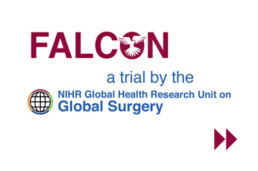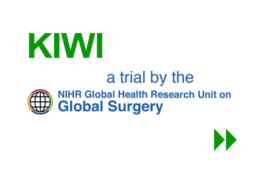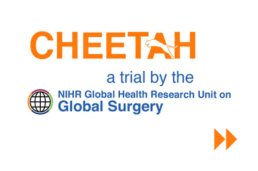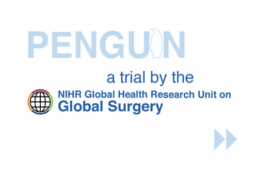Wound Infection
Improving surgical outcomes through collaborative research
The NIHR Global Health Research Unit on Global Surgery
Improving surgical outcomes through collaborative research
Wound Infection
Infection at the point of surgery, both during and following clinical operations is one of the leading causes of mortality in patients undergoing a clinical procedure. This is particularly an issue in settings in which access to sterile operating facilities is limited by poor medical infrastructures. The GSU aims to reduce mortality rates related to wound infection through research conducted via the FALCON, CHEETAH and PENGUIN trials. Further information on each individual trial and how they are helping to improve healthcare quality on an international scale can be found by clicking on the study links below.
Wound Infection Research

FALCON TRIAL
The FALCON trial looks into the prevention of surgical site infections (SSI) in low- and middle- income countries.
The health economics sub-study within FALCON is named KIWI (Key Resource Use In Wound Infection).
Surgical site infection (SSI) is a worldwide problem which has morbidity, mortality and financial consequences .Previous studies in LMICs on the costs of SSI have been limited by small sample size single-centre hospitals which did not capture costs occurring after hospital discharge. The lack of follow up is a problem as SSI can occur after discharge and costs associated with SSI have been shown to persist beyond 30 days. The main FALCON trial is assessing different treatment combinations to reduce Surgical Site Infection (SSI). The FALCON KIWI sub study is assessing the resource use and costs for patients with and without SSI across several hub countries.

KIWI STUDY
The FALCON KIWI sub study is assessing the resource use and costs for patients with and without SSI across several hub countries. KIWI includes resource use collection (via additional CRFs) up to the 30-day follow-up assessment for patients and extended follow-up for any patients with an ongoing wound infection up to 60 days post-surgery.’

CHEETAH TRIAL
The main CHEETAH trial is assessing whether the practice of using separate, sterile gloves and instruments to close wounds at the end of surgery can reduce surgical site infection at 30-days post-surgery for patients undergoing clean-contaminated, contaminated or dirty abdominal surgery, compared to current routine hospital practice.
Using information from FALCON KIWI and primary data collection in CHEETAH, the cost-effectiveness of the changing gloves/instruments prior to wound closure compared to current routine hospital practice will be assessed.

PENGUIN TRIAL
The PENGUIN trial is a 2 x 2 factorial, international pragmatic randomised trial. The trial aims to assess whether preoperative chlorhexidine mouthwash when compared to no-mouthwash-surgery can reduce incidence of post-operative pneumonia (POP) and whether perioperative liberal oxygen versus restrictive oxygen can reduce incidence surgical site infections (SSI) at 30-days among abdominal surgery patients.
Bringing together surgeons, researchers and policy makers to set the local research agenda according to patient need in LMIC and ensuring all patients have the opportunity to take part in our research.
